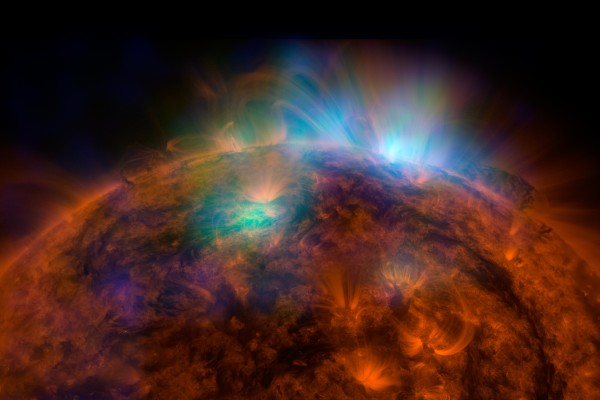Physicist awarded $1.3 million for development of detectors for hard X-ray telescopes
Henric Krawczynski, PhD, professor of physics in Arts
& Sciences at Washington University in St. Louis, has won a $1.3 million NASA grant to develop semiconductor detectors and their readout electrons for the
next generation of X-ray telescopes.
Origin of galactic cosmic rays focus of NASA grant
WUSTL astrophysicists have received a five-year, $3,225,740 grant from NASA to design and build Super-TIGER — a Trans-Iron Galactic Element Recorder — to collect rare atomic particles called galactic cosmic rays. Super-TIGER’s first flight is planned for December 2012.
Origin of galactic cosmic rays focus of NASA grant
Courtesy photoW. Robert Binns and TIGER prelaunch in AntarcticaAstrophysicists at Washington University in St. Louis have received a five-year, $3,225,740 grant from the National Aeronautics and Space Administration to design and build Super-TIGER — a Trans-Iron Galactic Element Recorder — and then fly it aboard a high-altitude balloon over Antarctica to collect rare atomic particles called galactic cosmic rays. Super-TIGER’s first flight in search of the origin of cosmic rays is planned for December 2012.
WUSTL’s McDonnell Center for the Space Sciences names new director
Ramanath Cowsik, Ph.D., one of the world’s pre-eminent astrophysicists, has been named director of the McDonnell Center for the Space Sciences at Washington University in St. Louis. Cowsik, professor of physics in Arts & Sciences at Washington University, will take over as director July 1. He succeeds Roger J. Phillips, Ph.D., professor of earth and planetary sciences in Arts & Sciences, who is stepping down after seven years as director.
Cowsik elected to National Academy of Sciences
Ramanath Cowsik, Ph.D., professor of physics in Arts & Sciences at Washington University in St. Louis, recently became the 25th member of the Washington University faculty to be elected to the National Academy of Sciences. He joined 71 other new members and 18 foreign associates from 13 countries in recognition of their distinguished and continuing achievements in original research.

